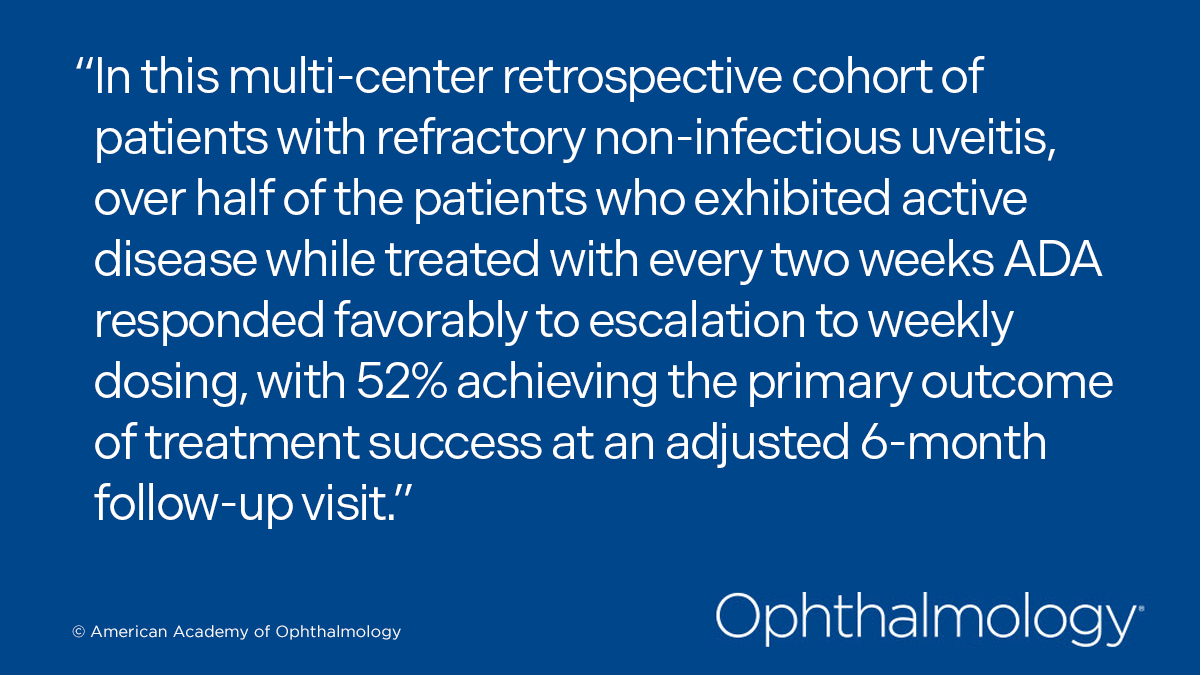New Research Highlights Improved Uveitis Control with Escalated Adalimumab Therapy

Advancing Uveitis Treatment: Dr. Akshay Thomas Contributes to Multi-Center Study on Weekly Adalimumab Dosing
Dr. Akshay Thomas recently contributed to a new multi-center study, “Evaluating the Effectiveness of Escalating to Weekly Adalimumab Dosing for the Treatment of Non-infectious Uveitis”.
The study examined the outcomes of increasing adalimumab (Humira) dosing frequency for patients whose non-infectious uveitis (NIU) remained active despite standard biweekly treatment.
Understanding the Research
Non-infectious uveitis is a group of inflammatory eye conditions that can lead to pain, light sensitivity, and vision loss if not properly managed. Adalimumab (Humira) is a biologic medication that targets inflammation and has been FDA-approved for the treatment of NIU since 2016.
While standard adalimumab dosing every two weeks is effective for many patients, some individuals experience persistent inflammation or a recurrence of symptoms over time. This study explored whether increasing dosing frequency to once weekly could help better control inflammation in these more challenging cases.
Key Findings
The research analyzed 50 patients across six tertiary referral centers who required escalation to weekly dosing. Six months after the change:
- Over half (52%) achieved treatment success, as defined by improved inflammation control and reduced steroid dependence.
- Inflammatory signs significantly decreased, including anterior chamber cell activity and active retinal or choroidal lesions.
- 63% of patients reduced their oral steroid use, minimizing the side effects associated with long-term corticosteroid therapy.
- Patients with posterior uveitis were more likely to respond favorably to the weekly dosing regimen.
Why This Matters
These findings provide valuable real-world evidence supporting an alternative treatment strategy for patients with non-infectious uveitis who are not fully controlled with standard therapy. For retina and uveitis specialists, the study offers insight into tailoring biologic therapy to achieve better outcomes and preserve vision.
Continuing the Commitment to Vision Research
At Tennessee Retina, our physicians are dedicated not only to providing exceptional patient care but also to advancing the field of ophthalmology through clinical research and collaboration.
📚 Read the full article HERE



